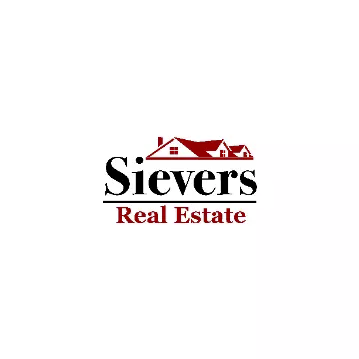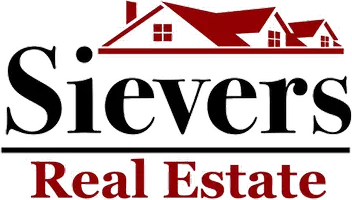Unlocking The Power of VA Loans: Your Guide to Home Ownership

Navigating the home-buying process can be daunting, but for veterans and active-duty service members, and for those who have served our country, homeownership should be within reach without unnecessary financial barriers. The VA loan program offers a powerful tool to make homeownership more accessible and affordable. Backed by the U.S. Department of Veterans Affairs, VA loans come with unique benefits such as no down payment, competitive interest rates, and no private mortgage insurance (PMI). Yet, despite these advantages, many potential homebuyers are unaware of how this program can help them secure their dream home.
However, understanding how to navigate the VA loan process and maximizing its benefits can be a challenge. Whether you’re buying your first home or considering a refinance, it’s important to know what sets a VA loan apart and how it can work for you. This blog will walk you through the essentials of VA loans, dispelling myths and providing insights that empower you to make confident, informed decisions on your journey to homeownership.
The Veteran Loan
A VA loan is a mortgage option provided by private lenders, such as banks or mortgage companies, and is guaranteed by the U.S. Department of Veterans Affairs (VA). This type of loan is specifically designed for veterans, active-duty service members, and certain members of the National Guard and Reserves, as well as eligible surviving spouses. VA loans offer significant benefits, including no down payment, no requirement for private mortgage insurance (PMI), competitive interest rates, and reduced closing costs, making it an attractive option for those who have served in the military.

Types of Veteran Loan
- VA Purchase Loan
- Purpose: To help eligible borrowers purchase a new or existing home with no down payment.
- Benefits: Competitive interest rates, no requirement for private mortgage insurance (PMI), and limited closing costs.
- Requirements: Must be used for a primary residence and meet the VA’s minimum property standards.
- VA Interest Rate Reduction Refinance Loan (IRRRL)
- Also Known As VA streamline refinance.
• Purpose: To refinance an existing VA loan to a lower interest rate or convert an adjustable-rate mortgage (ARM) into a fixed-rate loan.
• Benefits: Often requires minimal documentation and no appraisal, making it faster and simpler than traditional refinancing.
• Requirements: Must already have a VA loan and show a benefit in terms of lower monthly payments or a more stable loan structure.
- VA Cash-Out Refinance Loan
- Purpose: To enable homeowners to take cash out of their home equity for purposes such as paying off debt, funding education, or making home improvements.
- Benefits: Allows for refinancing a non-VA loan into a VA-backed loan, often with more favorable terms.
- Requirements: Must meet credit and income standards and have sufficient equity in the home.
- Native American Direct Loan (NADL)
- Purpose: To help eligible Native American veterans purchase, build, or improve a home on federally recognized tribal land.
- Benefits: Offers favorable terms and no down payment, similar to other VA-backed loans.
- Requirements: Must be a Native American veteran or the spouse of one, and the tribal land must be part of a recognized agreement with the VA.
- VA Renovation Loan
- Purpose: To help borrowers finance both the purchase of a home and the cost of renovations with a single loan.
• Benefits: Combines the cost of buying and renovating the home, which simplifies the borrowing process.
• Requirements: The home must meet the VA’s property standards after renovations.
Each type of VA loan is designed to cater to different homeownership goals, making them versatile tools for veterans and service members to build financial stability and secure their housing needs.

Eligibility Criteria
- Service Requirements
- Veterans: Must have served a minimum period, usually 90 consecutive days of active service during wartime or 181 days during peacetime.
- Active-Duty Service Members: Eligible after serving for 90 continuous days.
- National Guard and Reserves: Must have completed at least 6 years of service or meet specific criteria such as 90 days of active service during wartime.
- Discharged Due to Service-Connected Disability: If discharged due to a service-connected disability, service length requirements may be waived.
- Certificate of Eligibility (COE)
- A COE is required to prove eligibility for a VA loan. This document can be obtained through the VA’s eBenefits portal, via a VA-approved lender, or by mail using VA Form 26-1880.
- Spouse Eligibility
- Surviving Spouses: Eligible if they are the spouse of a service member who died in the line of duty or as a result of a service-related disability and have not remarried.
- POW/MIA: Spouses of service members who are prisoners of war or missing in action may also be eligible.

- Credit and Income Standards
- While the VA does not set a minimum credit score, most lenders will have their credit requirements, typically starting around 620.
• Proof of sufficient, stable income to cover mortgage payments, living expenses, and other obligations is necessary.
- Property Requirements
- The property must be a primary residence and meet the VA’s minimum property requirements (MPRs) to ensure it is safe, sound, and sanitary.

Advantages of VA Loans Compared to Conventional Loans
- No Down Payment Required
- VA Loan: Unlike conventional loans, VA loans do not require PMI, even without a down payment. This can save borrowers significant money over the life of the loan.
- Conventional Loan: A minimum down payment of 3% is required.
- No Private Mortgage Insurance (PMI)
- VA Loan: Unlike conventional loans, VA loans do not require PMI, even without a down payment. This can save borrowers significant money over the life of the loan.
- Conventional Loan: PMI is usually required if the down payment is less than 20%, adding to the monthly mortgage cost.
- Competitive Interest Rates
- VA Loan: Generally offers lower interest rates compared to conventional loans, thanks to the VA’s backing. This can lead to lower monthly payments and substantial savings over the life of the loan.
- Conventional Loan: Interest rates vary and are often higher, especially for borrowers with lower credit scores.

- Easier Credit Requirements
- VA Loan: Typically has more flexible credit score requirements compared to conventional loans. Lenders are often more willing to approve borrowers with lower credit scores due to the VA’s guarantee.
- Conventional Loan: Usually requires higher credit scores for favorable terms, which can make it harder for those with less-than-perfect credit to qualify.
- Limited Closing Costs
- VA Loan: The VA limits the types of closing costs that lenders can charge to the borrower, making the process more affordable.
- Conventional Loan: Closing costs can vary widely and are generally not capped, potentially leading to higher out-of-pocket expenses.
- No Prepayment Penalty
- VA Loan: Borrowers can pay off their loan early without any prepayment penalties, which allows them to save on interest if they choose to pay ahead of schedule.
- Conventional Loan: Some conventional loans may include prepayment penalties, making it costly for borrowers to pay off their loans early.
- Assumable Loan Feature
- VA Loan: VA loans are assumable, meaning the loan can be transferred to a qualified buyer if the original borrower decides to sell the home. This can be a valuable selling point if interest rates rise.
- Conventional Loan: Not all conventional loans are assumable, limiting this option for borrowers.
- Foreclosure Protection
- VA Loan: The VA offers support and resources to help borrowers avoid foreclosure, including financial counseling and assistance in negotiating with lenders.
- Conventional Loan: While there are foreclosure prevention programs, they do not typically come with the same level of government-backed assistance as VA loans.
- Common Myths About VA Loans
- Myth: VA loans take too long to process.
- Fact: VA loans often process just as quickly as conventional loans.
- Myth: VA loans are only for purchasing a home.
- Fact: VA loans can sometimes be used for refinancing and even renovations.

- The Application Process
- Determine Eligibility
- Check Service Requirements: Ensure you meet the minimum service requirements for a VA loan.
• Obtain a Certificate of Eligibility (COE): The COE is proof that you qualify for a VA loan. You can get this online through the VA’s eBenefits portal, through a VA-approved lender, or by mail using VA Form 26-1880.
- Find a VA-Approved Lender
- Choose a lender that is experienced with VA loans. Working with a lender who understands the VA loan process can streamline your experience and help you maximize the loan benefits.
- Pre-Qualification
- Initial Financial Review: Pre-qualify by providing basic information about your income, debt, and credit. This step gives you an idea of how much home you can afford and shows sellers that you are a serious buyer.
- Pre-Approval: A more thorough process than pre-qualification. You will need to submit documents such as pay stubs, tax returns, and bank statements for the lender to verify your financials and issue a pre-approval letter.

- House Hunting
- Work with a real estate agent who understands the VA loan process. Search for homes that meet your budget and the VA’s minimum property requirements (MPRs).
- Make an Offer
- Once you find the right home, submit an offer. If it’s accepted, your lender will begin the formal loan application process.
- VA Appraisal and Underwriting
- VA Appraisal: The lender orders a VA appraisal to ensure the home meets the VA’s MPRs and is priced appropriately. This is not as comprehensive as a home inspection, so it’s wise to get an inspection done separately.
- Underwriting: The lender’s underwriter reviews your loan file to ensure you meet all financial requirements. This step includes verifying your credit, income, and debt-to-income ratio.
- Loan Approval and Closing
- Conditional Approval: You may receive conditional approval with certain requirements that need to be met (e.g., additional documents).
- Final Approval: Once all conditions are satisfied, your loan receives final approval.
- Closing: At the closing meeting, you’ll sign the necessary documents to complete the purchase and take ownership of the home. You’ll pay any closing costs not covered by the loan, although the VA limits what lenders can charge you.

- Move Into Your New Home
- Once all paperwork is complete and the loan is funded, you’ll receive the keys to your new home.

CONCLUSION
Securing a home loan doesn’t have to be an overwhelming task, especially for those who have served our country. VA loans are designed to provide veterans, active-duty service members, and eligible spouses with the financial flexibility and benefits they deserve. From buying your first home to refinancing or funding improvements, the VA loan program offers options tailored to your needs, helping you achieve homeownership without the usual hurdles of high down payments or mortgage insurance.
The path to homeownership can be smoother when you take advantage of the powerful benefits of a VA loan. By understanding your eligibility, the application process, and the unique advantages this loan provides, you’re well on your way to making informed, confident decisions. Remember, this is more than just a loan—it’s a recognition of your service and a step toward securing a comfortable future for you and your family.
If you are moving to Puget Sound to be stationed at Joint Base Lewis McChord (JBLM), Bangor, Puget Sound Naval Shipyard (PSNS) or Keyport, we are ready to help you take advantage of the VA benefits you've earned, just contact us for more information.
Recent Posts










GET MORE INFORMATION

